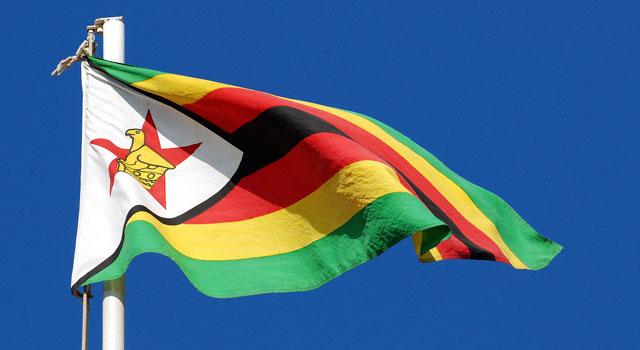News / Local
Zimbabwe lags behind South Africa in literacy rates?
05 Dec 2024 at 09:18hrs |
0 Views

Zimbabwe has secured the 4th spot in the ranking of African countries with the highest education levels in 2024, according to a report by Data Panda. The ranking is based on literacy rates and years of schooling, with Zimbabwe emerging as one of the top 10 countries for education on the continent.
Seychelles topped the list, followed by South Africa in second place and Mauritius in third. Other countries in the top 10 include Botswana (5th), Gabon (6th), São Tomé and PrÃncipe (7th), Tunisia (8th), Algeria (9th), and Egypt (10th).
In an interview with CITE, Taungana Ndoro, the Director of Communications and Advocacy at the Ministry of Primary and Secondary Education, attributed Zimbabwe's strong ranking to several strategic government initiatives aimed at improving education. He explained:
"The curriculum is evolving from a colonial framework to a heritage-based model, which emphasizes the ethos of hunhu/ubuntu (humanity) and connects students with their heritage."
Ndoro praised the leadership of President Emmerson Mnangagwa, highlighting the government's commitment to education as a driving force behind Zimbabwe's high literacy rates. He noted that Zimbabweans are often found in high-paying jobs globally, further underscoring the quality of education provided in the country.
Zimbabwe's commitment to education is reflected in the 2025 National Budget, where Finance Minister Mthuli Ncube allocated ZWL 46.6 billion to the Ministry of Primary and Secondary Education, the highest allocation among all government ministries. The overall budget for all ministries in 2025 is ZWL 276 billion, with a combined education budget of ZWL 56.96 billion, which accounts for approximately 23.6% of the national budget.
This allocation surpasses the Dakar Declaration target of 20% and meets the World Education Forum's recommendation of 15-20% of public expenditure for education.
However, some critics argue that financial allocations alone may not be sufficient. A 2017 World Bank study highlighted the importance of factors such as human resources, classroom availability, infrastructure, and teacher-pupil ratios in assessing the effectiveness of education budgets.
A teacher in Bulawayo, who moved from the public to the private sector, emphasized the need for improvements, particularly in rural areas. "While Zimbabwe has received recognition for its educational achievements, much more needs to be done. Children in rural areas face long distances to school, inadequate infrastructure, shortages of qualified teachers, and limited access to resources like textbooks and technology," the teacher said.
The teacher also pointed out the challenges posed by poverty and hunger, particularly during droughts, as well as cultural and language barriers, which can hinder education.
Despite these challenges, Zimbabwe's education system continues to be a source of pride, with ongoing efforts to address systemic issues and ensure all children have access to quality education.
Seychelles topped the list, followed by South Africa in second place and Mauritius in third. Other countries in the top 10 include Botswana (5th), Gabon (6th), São Tomé and PrÃncipe (7th), Tunisia (8th), Algeria (9th), and Egypt (10th).
In an interview with CITE, Taungana Ndoro, the Director of Communications and Advocacy at the Ministry of Primary and Secondary Education, attributed Zimbabwe's strong ranking to several strategic government initiatives aimed at improving education. He explained:
"The curriculum is evolving from a colonial framework to a heritage-based model, which emphasizes the ethos of hunhu/ubuntu (humanity) and connects students with their heritage."
Ndoro praised the leadership of President Emmerson Mnangagwa, highlighting the government's commitment to education as a driving force behind Zimbabwe's high literacy rates. He noted that Zimbabweans are often found in high-paying jobs globally, further underscoring the quality of education provided in the country.
Zimbabwe's commitment to education is reflected in the 2025 National Budget, where Finance Minister Mthuli Ncube allocated ZWL 46.6 billion to the Ministry of Primary and Secondary Education, the highest allocation among all government ministries. The overall budget for all ministries in 2025 is ZWL 276 billion, with a combined education budget of ZWL 56.96 billion, which accounts for approximately 23.6% of the national budget.
This allocation surpasses the Dakar Declaration target of 20% and meets the World Education Forum's recommendation of 15-20% of public expenditure for education.
However, some critics argue that financial allocations alone may not be sufficient. A 2017 World Bank study highlighted the importance of factors such as human resources, classroom availability, infrastructure, and teacher-pupil ratios in assessing the effectiveness of education budgets.
A teacher in Bulawayo, who moved from the public to the private sector, emphasized the need for improvements, particularly in rural areas. "While Zimbabwe has received recognition for its educational achievements, much more needs to be done. Children in rural areas face long distances to school, inadequate infrastructure, shortages of qualified teachers, and limited access to resources like textbooks and technology," the teacher said.
The teacher also pointed out the challenges posed by poverty and hunger, particularly during droughts, as well as cultural and language barriers, which can hinder education.
Despite these challenges, Zimbabwe's education system continues to be a source of pride, with ongoing efforts to address systemic issues and ensure all children have access to quality education.
Source - pindula
Join the discussion
Loading comments…



































